Coronavirus: Shots shots shots shots shots shots
Hello Quartz readers,

Hello Quartz readers,
AstraZeneca is still in the race to bring the first Covid-19 vaccine to market. Yesterday, the UK-based drug company announced that its candidate, developed in partnership with the University of Oxford, is roughly 70% effective at preventing infection two weeks or more after the second dose, with limited side effects.
Although vaccine candidates from Pfizer/BioNTech and Moderna have efficacy rates above 90%, AstraZeneca’s offers something the others don’t: the ability to be stored at 2°C to 8°C (36°F to 46°F), well in the range of normal refrigerators.
“It can be distributed around the world using the normal immunization distribution system,” Andrew Pollard, chief investigator for the trial, said during a news conference. “And so our goal…to make sure that we have a vaccine that was accessible everywhere, I think we’ve actually managed to do that.”
Both Pfizer and Moderna’s candidates require specialized, ultra-cold freezers that can store vaccines at -70°C (-94°F) and -20°C (-4° F), respectively. Already, public health officials are concerned that these freezers may not be accessible to rural areas and poorer countries.
The specialized equipment is necessary because of the nature of those vaccines: Both use a messenger RNA (mRNA) to instruct the body to make its own models of SARS-CoV-2’s spike protein; this mRNA needs to stay extra cold to keep its integrity. Drug makers have never brought an mRNA vaccine to market in part because it was so challenging to figure out how to effectively deliver it to the body.
AstraZeneca’s candidate, however, employs a tried-and-true vaccine platform called a viral vector, in this case swapping the viral genetic material of a weakened adenovirus with the genetic material for the SARS-CoV-2 spike protein. There are already vaccines for Ebola, tuberculosis, and MERS that use this same platform.
In addition to being easier to store, AstraZeneca’s vaccine should also be cheaper: $6 to $8 for both doses, compared to about $40 for Pfizer’s and $50 for Moderna’s, according to the Guardian. AstraZeneca plans to produce some 3 billion doses of its vaccine in 2021.
Potent quotables
🏡 “Buyers sought housing with more rooms, more square footage, and more yard space.” —Jessica Lautz, analyst and vice president at the National Association of Realtors
In October, US homes sold at higher prices and after less time on the market than in the same month a year ago.
🔥“We’re worried wildfire smoke may be enough to add fuel to the fire of Covid-19.” —John Balmes, a physician and epidemiologist at the University of California, San Francisco
Longer wildfire seasons are sending a toxic miasma of soot and ozone deep into the lungs of millions of Americans, raising the likelihood of more severe respiratory infections.
🍳 “Consumers are really getting tired of cooking at home.” —Dean Banks, Tyson’s president and CEO, during a conference call with analysts
This shift in US consumer behavior helped lift the company’s sales of prepared foods to $2.27 billion in the third quarter, a 1.6% increase over the same period last year.
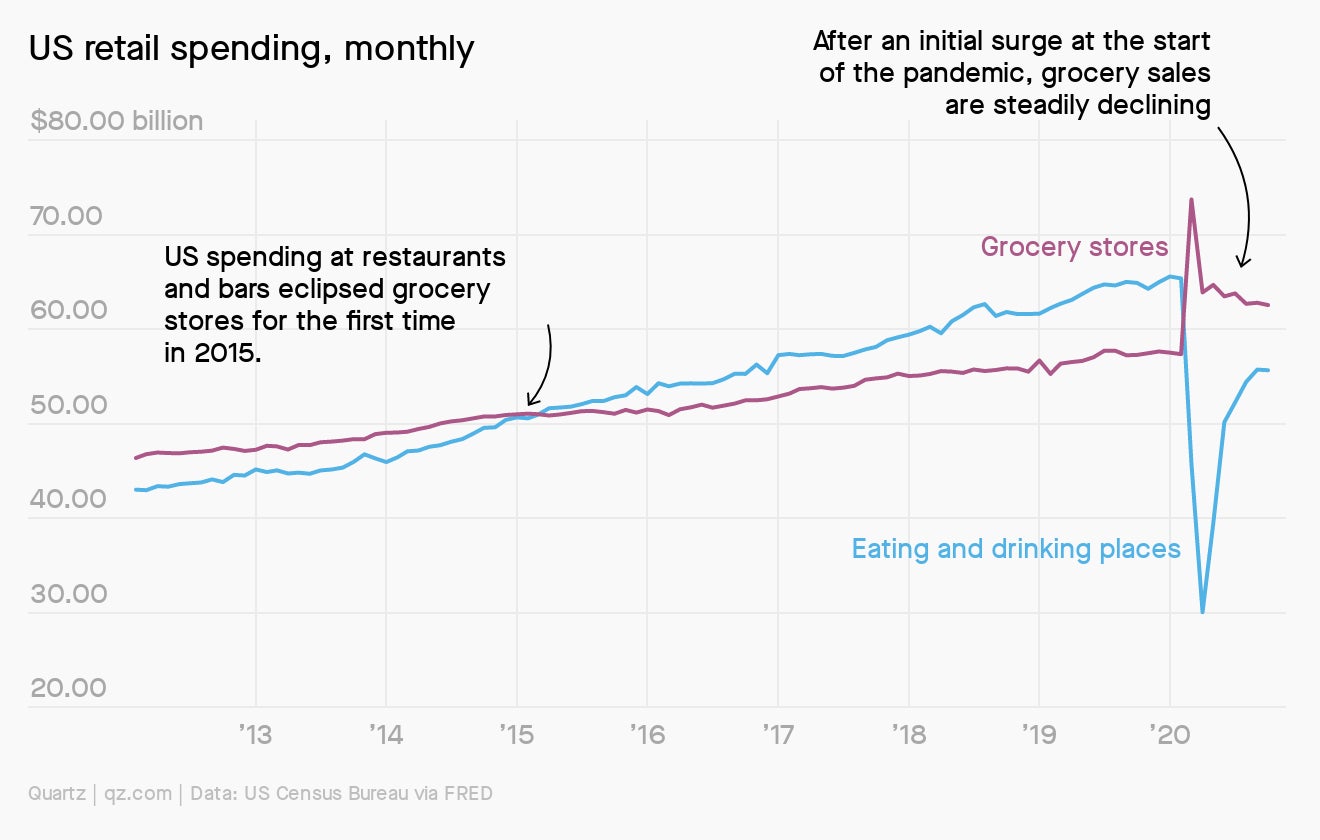
Have you had your break today?
Tyson isn’t the only company catching on to cooking burnout: Fast food chains are adjusting around quick, convenient, low-contact meals. Trends include:
🥐 New products, including more touch-free options.
🚗 Soaring drive-through use, absent indoor dining.
☕ Afternoon pick-me-ups instead of a morning rush.
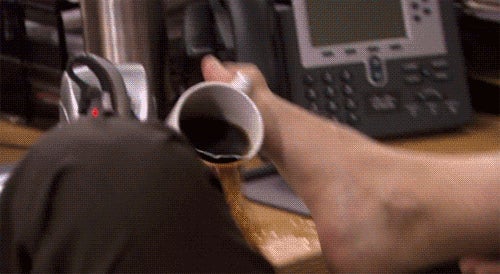
For more trends, check out our visualization on fast food’s survival tactics, part of a field guide on how we eat now. Not a member yet? Whet your appetite with a seven-day free trial.
Talking turkey
Whether or not you travel this Thanksgiving comes down to a risk assessment. But most of us aren’t great at this kind of computation, especially when our judgment is clouded by an overriding desire to see loved ones.
So let’s look at the data. Quartz’s Amanda Shendruk used the Covid-19 Event Risk Assessment Planning Tool to make a handy chart that shows how likely each US state is to bring coronavirus to dinner.
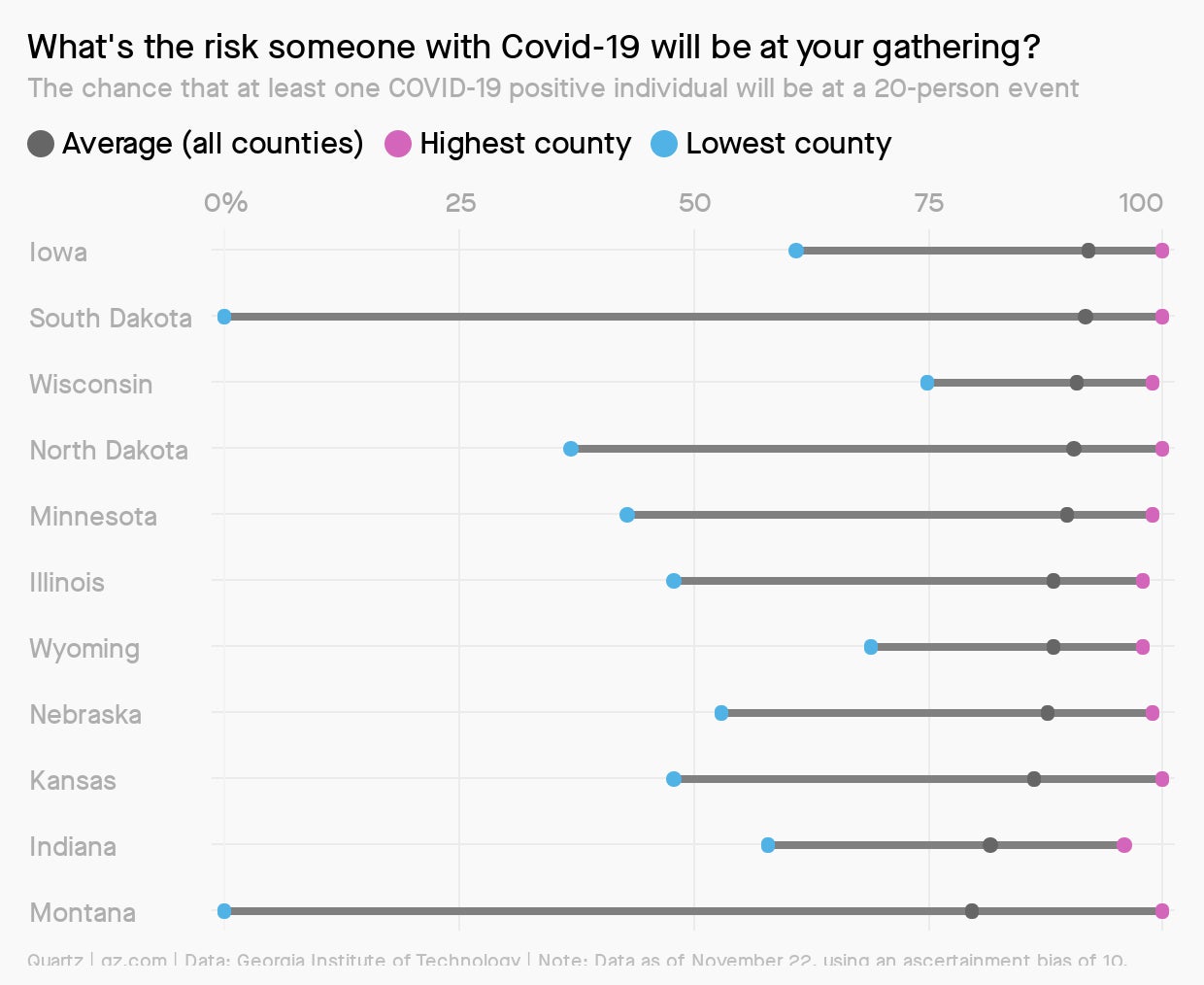
You can check out all the states here, and remember: Most Covid-19 spread occurs from people who aren’t showing symptoms. That one infected person at the event could be you.
Your house, will pay
Americans are taking on much more debt during the pandemic, but it’s not because they’re buying more stuff—they’re acquiring more space.
Recent data from the Federal Reserve Bank of New York shows total household debt increased by $87 billion to $14.35 trillion in the third quarter. The majority of that growth, $84.8 billion, was in mortgage balances.
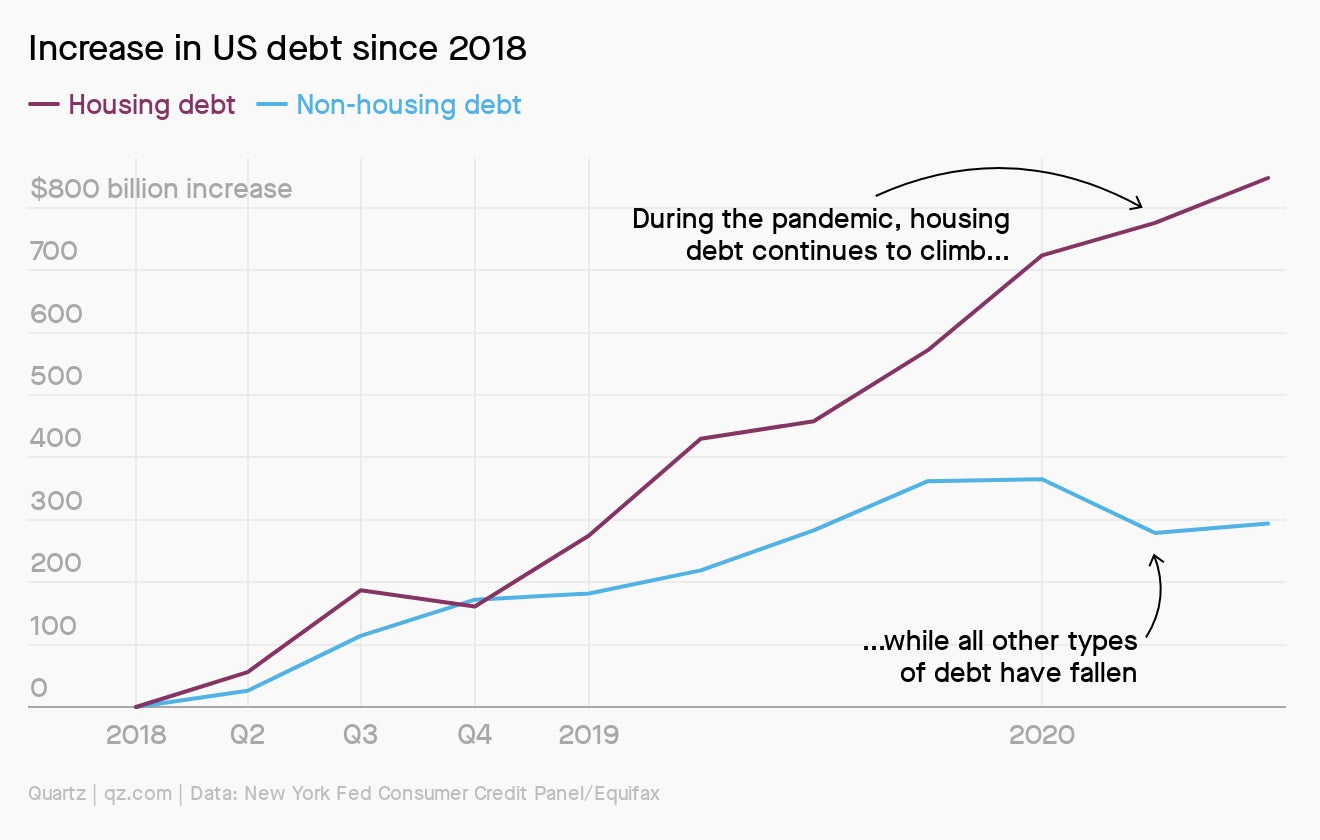
Notably, credit card balances fell $10 billion, following a $76 billion decline in the second quarter. That was the steepest decline in card balances since the New York Fed began publishing these data in 1999. The bank said it reflected weak consumer demand during the pandemic and people paying down their balances.
Cinched
Fashion purchases are down in many countries as sheltering-at-home shoppers prioritize spending on other categories. Those still buying pants are frequently opting for stretchy, comfortable styles rather than structured and rigid ones. As a result, belt sales are feeling the pinch.
Euromonitor International forecasts sales of belts will be down around the world this year. The Asia-Pacific region, the largest market for belts globally, will see sales fall about 13% to $7.5 billion. The next largest markets, North America and western Europe, will see much bigger declines, dropping to about $2.3 billion and $1.6 billion respectively.
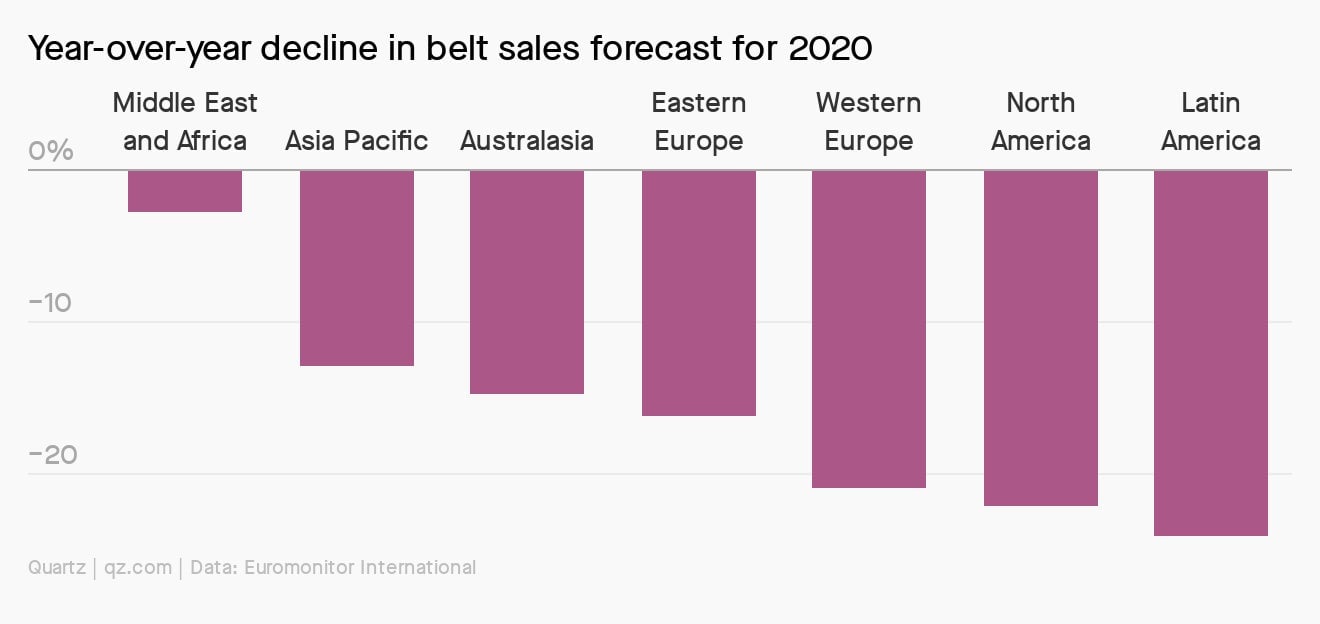
Essential watching
Last week, Dolly Parton was overjoyed to find that her $1 million donation to Covid-19 research was used partly to fund Moderna’s vaccine candidate. So Quartz reporter and Dolly superfan Tim McDonnell wrote and performed a “Jolene”-inspired tribute. Enjoy the full rendition here.

Essential reading
- The latest 🌏 figures: 59.5 million confirmed cases; 38.1 million classified as “recovered.
- Two birds, one loan: Coronavirus relief could stop the worst of climate change.
- Wiped out: Clorox is shipping nearly 1 million packs of wipes a day.
- IT follows: As businesses go virtual, Indian IT firms are hiring.
- Resource intensive: Covid-19 is forcing businesses to modernize their HR tools.
- Waste not, want not: What should we make of pandemic hoarding?
Our best wishes for a healthy day. Get in touch with us at [email protected], and live your best Quartz life by downloading our iOS app and becoming a member. Today’s newsletter was brought to you by Katherine Ellen Foley, Karen Ho, Amanda Shendruk, Marc Bain, Tim “Dolly” McDonnell, and Kira Bindrim.